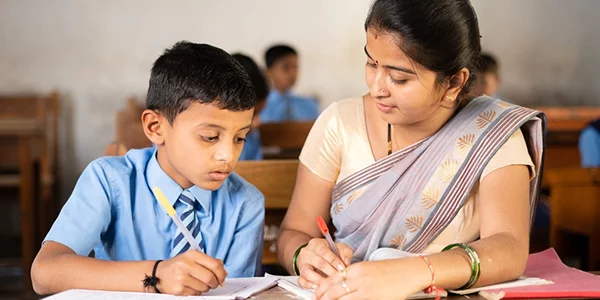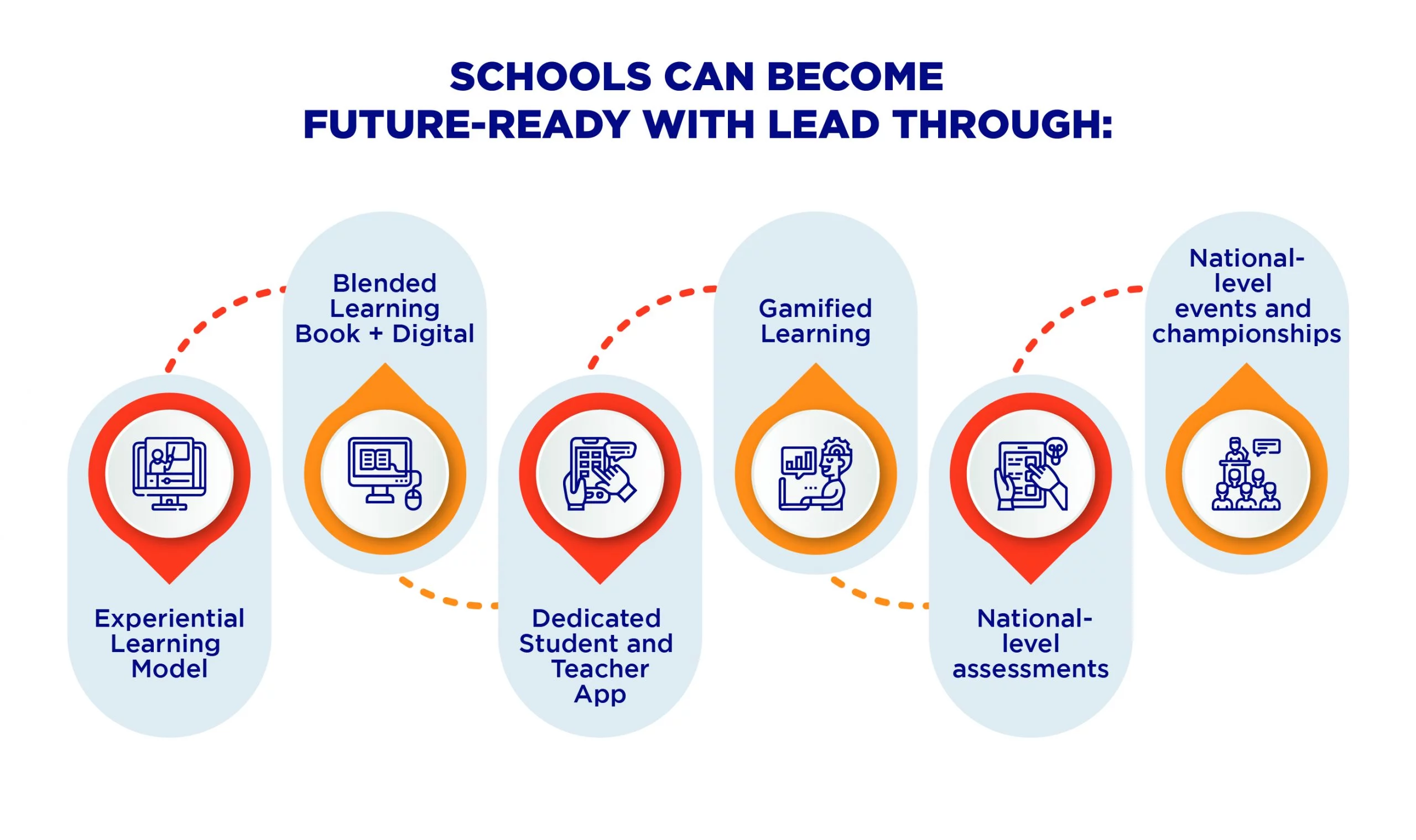How is LEAD empowering schools to keep up with the pace?

How is LEAD empowering schools to keep up with the pace?
Last Updated On: 12/05/2025
Neha Bhandari
School Owner

NEP 2020 is the first education policy of the 21st century that aspires to make India a “Global Knowledge Superpower” by reforming the Indian education system.
- Quality
- Equity
- Access
- Accountability
- Affordability
The revised policy aims to universalise education at all levels, from preschool to secondary, and introduces a new 5+3+3+4 structure that replaces the old 10+2 education system. Listed below are National Education Policy highlights.
Never miss a story
Stay updated with the latest news and articles related to school education
GIVE YOUR SCHOOL THE LEAD ADVANTAGE
How is LEAD Helping Schools to Stay Compliant with National Education Policy 2020?
The National Education Policy has given the education system a much- needed revamp and retired the old ways of learning. The government’s perspective has also changed towards the country’s education system; therefore, schools are now looking for ways to stay in line with the new policy guidelines. At LEAD, we offer a cutting-edge online integrated academic management solution that perfectly aligns schools with the revised policy. Let’s look at some of LEAD’s highly innovative programmes that support the government’s new education policy:
Pre-primary Curriculum – LEAD’s pre-primary integrated theme-based school curriculum is designed to help develop your child’s foundational skills through multimodal learning. It is benchmarked with NEL Singapore and aligned with the NCERT pre-school curriculum guidelines mentioned in NEP 2020.
International Standard Curriculum – LEAD’s deeply researched and internationally benchmarked curriculum helps students understand concepts 5 times faster. With future-forward learning methods, our grade- based, skill-oriented curriculum fits every type of student, no matter their learning style.
English Language and General Awareness (ELGA) – At LEAD, we treat language as a skill, not a subject. Our unique and innovative ELGA programme enables students to read, write, and are at least 1.5 years ahead in English in comparison to their peers. It focuses on the five key components of the English language: Grammar, Phonics, Whole Words, Reading and Listening Comprehension, and Writing and Speaking Expression.
Coding and Computational Skills (CCS) – The new National Education Policy recommends integrating coding with a 21st-century education. Therefore, LEAD’s CCS programme helps students learn coding languages from an early stage. It has been created after carefully analysing NEP 2020.
Sampoorna Hindi – LEAD’s Sampoorna Hindi programme makes students confident in the Hindi language by drastically improving their writing, reading, and speaking skills. To make learning Hindi a fun and enjoyable experience, it is offered in 3 different variants at the primary level: Saral, Sugam, and Samarth.
LEAD Academy Certification Program – LEAD Academy offers various certification programs, training sessions, and online workshops to help teachers become best-in-class. LEAD’s 3-year certification programme enables teachers to stay at the top of their game.
Digital Classroom Software – The new National Education Policy strongly emphasises online and digital learning to make education accessible for every child in India. LEAD offers schools the best digital classroom solutions with future-forward learning methods, such as virtual labs, smart classrooms, simulations, etc.
End-to-end Managed Services – Managed By LEAD offers expert advisory and management services to schools to help run their daily operations smoothly and efficiently. This one-of-a-kind service enables schools to increase the quality of academics, the number of admissions, and revenue per student.
To sum up, your school is future-ready with LEAD through:
- Experiential Learning Model
- Blended learning – Book + Digital
- Dedicated Student and Teacher App
- Gamified Learning
- National-level assessments
- National-level events and championships
Conclusion
So what are you waiting for? Contact LEAD at +918682833333 or [email protected] to upgrade your school in line with the new National Education Policy. Read more on how LEAD is aligned with it.
Article Summary
-The new 5+3+3+4 creates a strong base of ECCE to promote the overall development and well-being of children
-Govt. aims to raise the Gross Enrolment Ratio (GER) in higher education to 50% by 2025 and achieve 100% GER in school education by 2030.
-Importance of preparing learners for today’s highly competitive world by teaching contemporary subjects and skills
-Driving awareness and use of Indian languages
-Empowering educators to offer students competency-based learning

